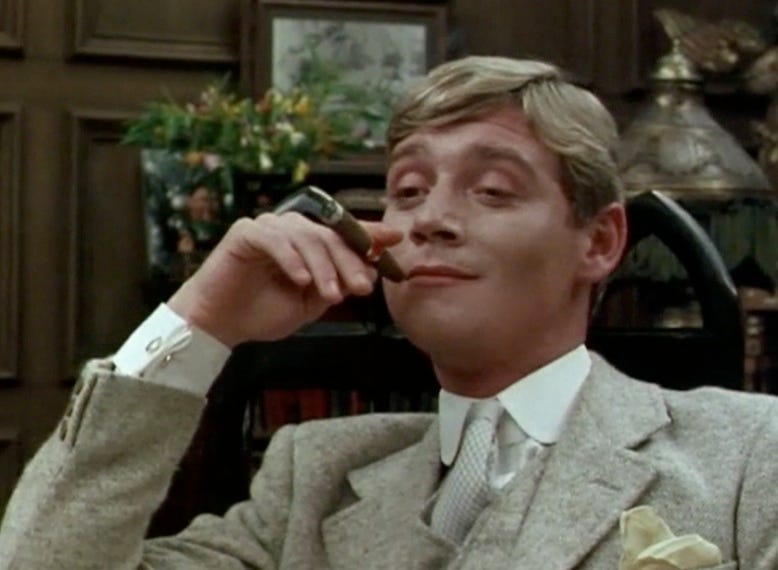We are all our own creators
It's very easy to think that we are at the mercy of events, but seizing agency can be transformative
I’m not much of a one for motivational quotations and aphorisms, as a rule. Social media is, of course, littered with them now, often misattributed or simply made up: any old banality acquires a patina of profundity if ascribed to the greats like Mandela, Lincoln and, er, Hitler. I also don’t really subscribe to the whole “positive thinking” agenda. It’s all too often embraced by the insufferable, who already esteem themselves far too highly and cloak their self-regard in “wellness”.
I’m acutely aware, too, that many of us are circumscribed by situations that are not within our control. Over the years, like anyone else, I’ve had financial ups and downs, and, as most people will know, a shortage of money weighs upon you all the time, wearing you down. There’s a reason we talk about “grinding” poverty. Our interpersonal relationships are also, by their very definition, not wholly ours to decide. It takes two to tango, the old saw has it, and you can’t always predict other people’s steps. Sometimes they’re not even doing the same dance as you.
However, as I get older—sorry, more mature—I realise that much more is within our power than we realise. Sometimes it takes courage, chutzpah, gumption, nerve, call it what you like, to make changes or reorder your existence in a more pleasing way, but it can be done, and the effects can be profound.
We all, I suspect, sometimes daydream of the sort of life we’d wish to lead. Our ambitions may be grandiose—untold wealth, a Caribbean hideaway, a harem of beautiful maidens—or they may appear to others rather pedestrian—reading more books, doing the crossword, taking up yoga. Some of the loftier ambitions are in part financial matters, and I understand that. The mental spending of the lottery win is no stranger in my mental household, though I try not to make it too detailed, too specific, too almost-real.
Often, however, it’s a matter of behaviour and willpower. Some people, and I definitely fall into this category, fall too easily at the first hurdle: something is unattainable, too difficult, beyond one’s grasp, or simply too much effort. If you see these things merely as nice-to-haves, rather than critical to your wellbeing, they generally remain out of reach. But they are both more important and more achievable than you think.
A prerequisite is internal honesty. I spent my teenage years wading through the twists and turns of Renaissance thought, and a phrase that came up again and again was Abelard’s maxim “scito te ipsum”, “know thyself” (derived, of course, from the inscription on the pronaos of the Temple of Apollo at Delphi, “γνῶθι σεαυτόν”). Abelard was fascinated by the concept of intent and one’s inner life, and his phrase was taken up by his successors as a fundamental part of the process of understanding human existence. To know anything, and to lead a good life, one had to begin by knowing oneself.
I don’t berate everyone I meet with mediaeval philosophy, but I think in this instance Abelard was on to something. The brain is, extraordinarily, able to lie to itself, and I have known people who have told a lie so often and for so long that it becomes, to them, a weird sort of truth. Certainly we deceive ourselves a lot of the time. But being honest with yourself, clarifying and unearthing fundamental truths without ornament or decoration, is essential for lasting happiness. (You can make that into a meme if you like.)
Let me show you what I mean. You may think airily “I wish I was the sort of person who…” or “Wouldn’t it be nice to…” What do you actually mean? What actions would that sort of person take? What do you have to do to make yourself into that person? What has to happen to have that life?
To take a trifling example: you might think, one sunny day, as the scent of the blossom drifts in through an open window, “Goodness, I wish I always had fresh flowers in the living room”. Your mind may wander further than that: you may imagine Sebastian Flyte’s room at Oxford, bouquets heaped everywhere and a young man draped lazily over a sofa. Pale suits, silk shirts, a cool glass of Riesling at your hand. The murmur of the young outside in the quad. Plover’s eggs on a plate. Whatever. I mean, I haven’t given it much thought.
A lot of us will enjoy the daydream, then gather our thoughts and go about our business. A nice fancy, perhaps a recurring one. But not part of the real world.
All right, you can’t really make your life into a decadent set in a 1920s Oxford college. But remember what spurred the thought. Freshly cut flowers. Well, it is not beyond the realms of possibility to keep a vase of blooms on the table or sideboard. Buy a bunch—they needn’t be expensive—and when they wilt, replace them. Make a note to do so until it becomes second nature, part of your routine. After a week or so, you’ve become that person. You always have fresh flowers. People may remark on it. Your friends may say to each other enviously, “It’s so lovely, s/he always has fresh flowers”. It’s not much, but I bet it will make you happy. You’ve changed your life, if only by a minute of a degree. And all it took was a smidgen of willpower and a bit of effort.
Often we can delve back into our youth and find wishes we can fulfil. This struck me with some force recently. I was walking through Leicester Square—such a prosaic location!—and I was wearing a three-piece suit and a hat, as I’d had a meeting in town. Rain had threatened, so I was swinging my umbrella rhythmically, the ferrule clacking on the pavement. I was in a fairly contented state of mind, but I suddenly thought: this is the sort of existence I dreamed about as a child (I was an odd child, OK?). Wearing a good suit, carrying a whangee-handled umbrella that I first read about in P.G. Wodehouse. I wondered at my good fortune, but then I thought a bit harder about how this had come to pass.
It was simple, really. For the most part, I’d just gone and done it. Not daydreamed, but bought a good suit, worn it because it pleased me (I could have worn anything for the meeting, really, but I feel at my best in a suit), and I had chosen a good umbrella because I’d lost too many mediocre ones so I thought I’d double down. There was nothing impossible about the vignette, nothing unattainable, nothing restricted to the realms of fantasy. All it had taken was the effort to arrange things as I knew, in my heart, would please me. And that gave me great contentment.
You will not all be so profoundly happy about clothes. I get that. But mutatis mutandis. Meet me halfway. Do you have an image of yourself as you wish you were? Whether it’s being something, having something, doing something, wearing something? Analyse it. You can’t give yourself a job or a partner or a title by wishing, but there’s a lot you can achieve.
My great friend and business partner, Mark Heywood, has been a great spur to me. His advice in this kind of situation, and others, is that if you do something, it becomes a thing. Let’s call it self-actualisation, to be all Maslow’s-hierarchy-of-needs about it. Think about something you want, think about how you can achieve it, and just bloody well do it. It’s easier than you think.
The effects are also more significant than you might imagine. I am, more and more as I get older, a great believer that our span is not only short but so very fragile. We don’t know how long we have, because the world is so full of things that might happen and one of the bad ones could happen to us at any moment. We really oughtn’t to put things off (this was brought home to me recently when I realised no fewer than six of my Facebook contacts are, in fact, dead). Carpe diem, or, as Beavis and Butthead had it, carne diem (“That means ‘meat day’, asshole”).
We have no duty to be happy. Don’t let anyone tell you we have. But I think if you can be happier than you are now, then you should do it, and it may be that just a little tweak of your life, maybe something that will seem so very, very small at first glance, could in fact tip the balance of your contentment decisively. So whether it’s fresh flowers, a bamboo handle on your umbrella or learning conversational Serbo-Croat, for heaven’s sake, just do it. Wouldn’t the world be a better place if we were all one degree happier?
§§§§§§§§§§§§§
I end with the usual pleas.
You can follow my journalistic output here: sign up and you’ll get alerts every time something new appears (imagine the excitement).
If you like these epistles, and think they’re worth reading, tell people about them. If you all get one more person to sign up, and I make this request every time, it’s compound interest and we’re all winners.
Finally, if you haven’t already done so, look at CulturAll, the digital arts and culture journal that Frances, Alex, Mariana and I have set up. It’s really good. You can subscribe, and we’re on Twitter.






I share your view on made up quotes from Einstein and Ben Franklin. As such, I tend to prefer 90’s rappers for my wisdom quotes. The following chimes with your writing I think.
“For My Hustler Here’s Some Motivation: He Who Has Begun Is Half Done, Why You Waitin”- Nas